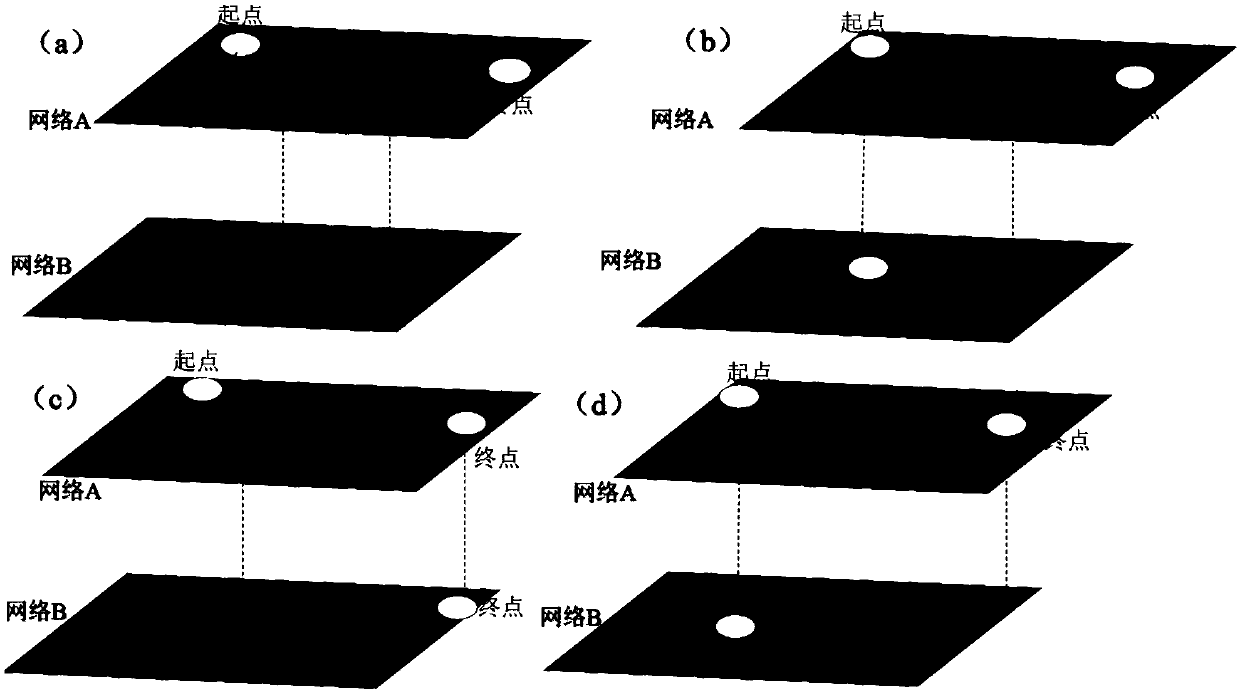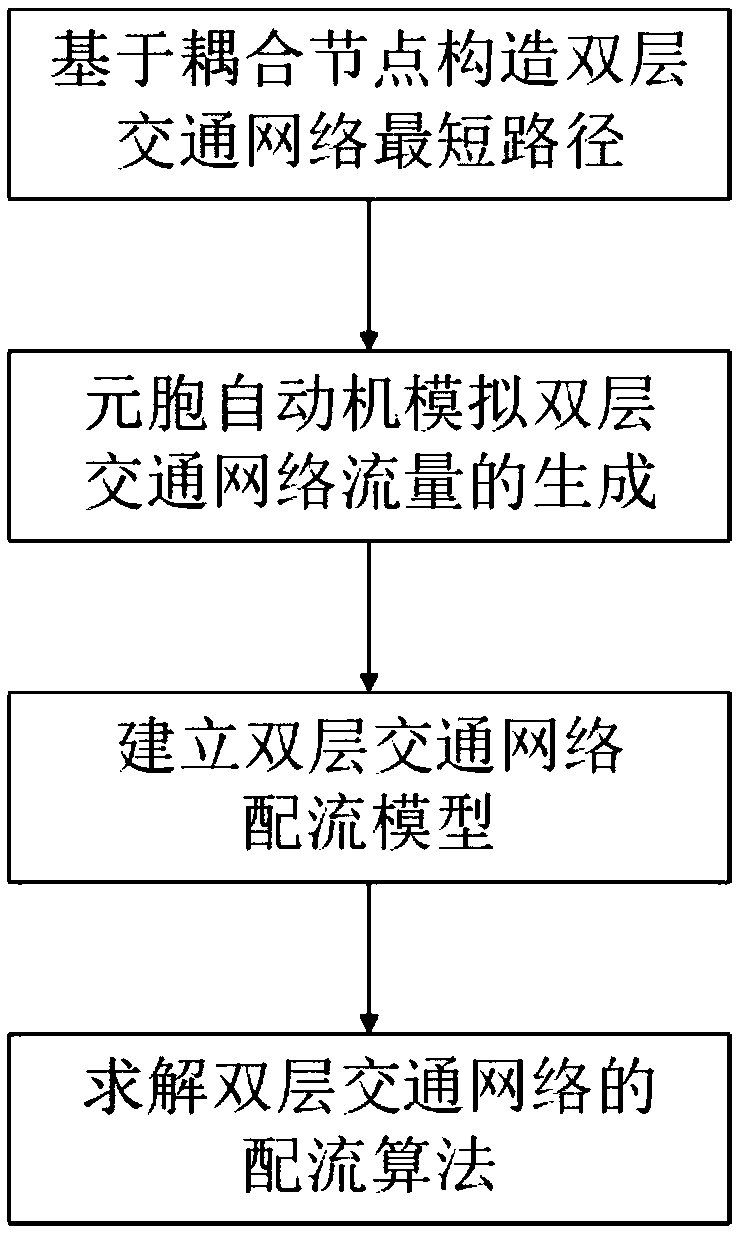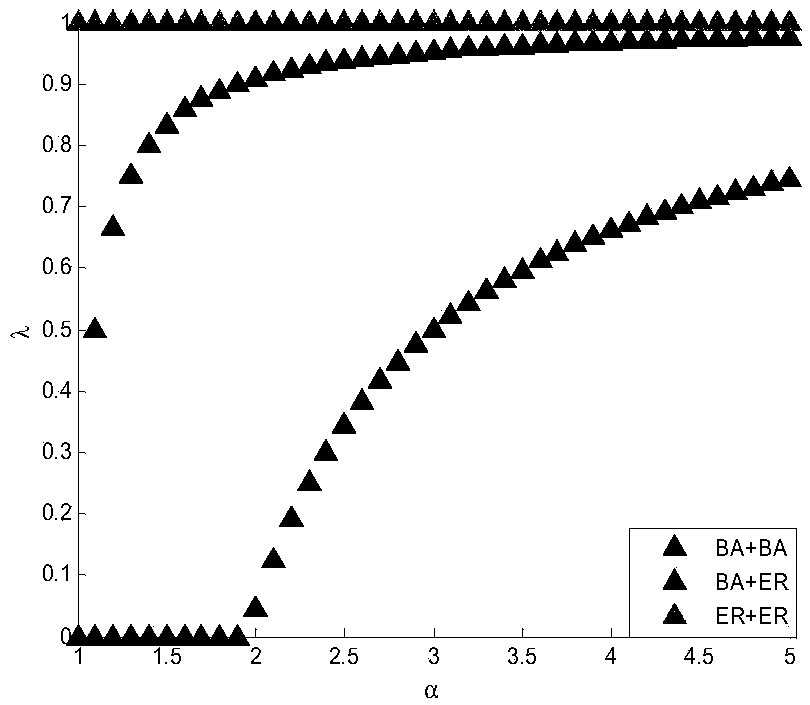Double-layer traffic network model-based anti-congestion method
A traffic network and bus network technology, applied in data processing applications, forecasting, instruments, etc., can solve problems such as the difficulty of studying urban traffic multi-mode situations, urban traffic network congestion obstacles, etc.
- Summary
- Abstract
- Description
- Claims
- Application Information
AI Technical Summary
Problems solved by technology
Method used
Image
Examples
Embodiment
[0137] The present invention considers that the upper layer network is a low-speed network, that is, the operating speed is relatively slow and dense; the lower layer network is a high-speed network, and the operating speed is relatively fast and sparse. Considering the actual situation, passengers will choose the shortest route to take the bus during the travel process. In addition, they will try to avoid fewer transfers. Transfers refer to jumps between corresponding nodes in the upper and lower layers of the network. Therefore, assuming that the number of transfers of passengers No more than 2 (ie n≤2). Generally speaking, in real life, the number of bus stops is more than that of subway stations, that is, N A ≥N B , using the random coupling method to realize the coupling of the upper and lower layers of the network: for each node in network B, randomly select a node from network A, if there is no edge between these two points, connect them. Repeat this process until all...
PUM
 Login to View More
Login to View More Abstract
Description
Claims
Application Information
 Login to View More
Login to View More - R&D
- Intellectual Property
- Life Sciences
- Materials
- Tech Scout
- Unparalleled Data Quality
- Higher Quality Content
- 60% Fewer Hallucinations
Browse by: Latest US Patents, China's latest patents, Technical Efficacy Thesaurus, Application Domain, Technology Topic, Popular Technical Reports.
© 2025 PatSnap. All rights reserved.Legal|Privacy policy|Modern Slavery Act Transparency Statement|Sitemap|About US| Contact US: help@patsnap.com



